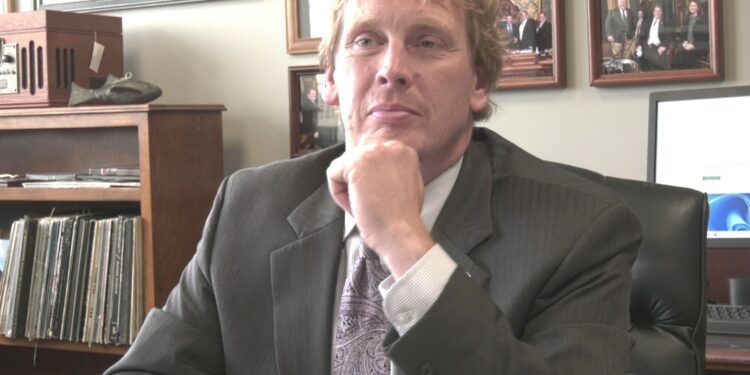LANSING, Mich. (WZMQ) – In August, a lawsuit was filed by Benton Harbor residents against Governor Gretchen Whitmer. According to the suit, a senior energy advisor with Governor Whitmer received email from a consultant which contained Greek letters, used to hide the contents of the email from FOIA requests.
The Freedom of Information Act (FOIA) was created to allow people access to public information surrounding governmental bodies and operations. State Senator Ed McBroom said when he heard about the email earlier in the year he and his office started working on legislation to amend the act to prohibit any future instances.
“I’ve been a proponent since my house states form more openness in government, FOIA… We created a legislative open records act idea that we’ve had pass in one chamber and not the other for numerous cycles now.” Senator McBroom said. “We initially started off with just foreign language and I said that’s not enough, we’ve got to be talking about coding languages, and about language intended to deceive, things like that to broaden the scope so we’re not just narrowly focused on the one instance, but and any other subterfuge that a legislator, state employee, or official might try to do at the local level to try to keep certain documents from being found by the public as they seek those out, as it is their legal right to do.”
Senator McBroom says simple amendments like this one only take a few hours of work for him, and a hand full or others to draft and submit.
“We found the current law, recognized where this would fit within the current law, add the few sentences.” Senator McBroom explained. “Then we are have an attorney at The Services Bureau who is technically constitutionally responsible for drafting legislation change it into some of the legalese that lawyers are so good at. Then we start reviewing it. We went to a couple of other experts from The Press Association, and from some of the other open government advocates.”
Once drafted legislation is reviewed by other experts, the recommended changes are made before it’s introduces to a chamber of the legislature, either The House of The Senate.
“Other bills that we craft, especially ones that are brand new ideas that don’t have a current law or statute to work on, they can take months and the input of dozens of people.” McBroom said.
McBroom says now that the bill has been introduced to the senate, committee hearings are held.
“New amendments or ideas are suggested by committee members, the committee votes on a final product, it goes to the [Senate] chamber, the chamber then debates it, they may amended it, change it, substitute it, then they vote on it, and it goes to the other chamber and starts all over again.” McBroom said. “And then, after the two chambers have reconciled any differences they have, and The Governor has their chance to sign or veto.”
Senator McBroom said the bill is being reviewed by The Senate Oversight Committee, his hope is this bill will be combined with other legislation and be voted on before the end of the year.
“I envision that it’s most likely to get melded into a larger overhaul of the FOIA system, which myself and Senator Moss [11th Senate district] have been working out for the legislature and The Governor for several years and so I think it’s probably likely that that language will probably be planted into another bill.” McBroom said “That’s fine with me if we get the issue taken care of one way or another.”
The full bill by Senator McBroom can be found on legislature.mi.gov and a full statement from The Senators Office is available here: senatoredmcbroom.com

















